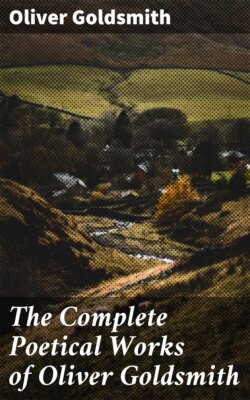Читать книгу The Complete Poetical Works of Oliver Goldsmith - Оливер Голдсмит - Страница 10
На сайте Литреса книга снята с продажи.
notes
Оглавлениеpage 4
they at first rival Poetry, and at length supplant her; they engross all that favour once shown to her, and though but younger sisters, seize upon the elder's birthright.
Yet, however this art may be neglected by the powerful, it is still in greater danger from the mistaken efforts of the learned to improve it. What criticisms have we not heard of late in favour of blank verse, and Pindaric odes, choruses, anapaests and iambics, alliterative care and happy negligence! Every absurdity has now a champion to defend it; and as he is generally much in the wrong, so he has always much to say; for error is ever talkative.
But there is an enemy to this art still more dangerous, I mean Party. Party entirely distorts the judgment, and destroys the taste. When the mind is once infected with this disease, it can only find pleasure in what contributes to increase the distemper. Like the tiger, that seldom desists from pursuing man after having once preyed upon human flesh, the reader, who has once gratified his appetite with calumny, makes, ever after, the most agreeable feast upon murdered reputation. Such readers generally admire some half-witted thing, who wants to be thought a bold man, having lost the character of a wise one. Him they dignify with the name of poet; his tawdry lampoons are called satires, his turbulence is said to be force, and his frenzy fire.
What reception a Poem may find, which has neither abuse, party, nor blank verse to support it, I cannot tell, nor am I solicitous to know. My aims are right. Without espousing the cause of any party, I have attempted to moderate the rage of all. I have endeavoured to show, that there may be equal happiness in states, that are differently governed from our own; that every state has a particular principle of happiness, and that this principle in each may be carried to a mischievous excess. There are few can judge, better than yourself, how far these positions are illustrated in this Poem.
I am, dear Sir,
Your most affectionate Brother,
OLIVER GOLDSMITH.
